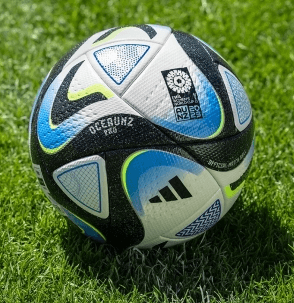

The FIFA (FIFA) Women's World Cup is an international association football competition contested by the senior Women’s National teams of the members of FIFA, the sport's international governing body. The competition is held every four years, where national teams vie for 31 slots in a three-year qualification phase. New Zealand and Australia are hosting the event in July and August, making it the first time it is held in the Southern Hemisphere.
A competition like the Women’s World Cup, if you have coeliac disease, involves more than just a training programme, involves dedication, building a physical fitness base, mental preparation, and preparation for adherence to a gluten-free diet that gives the players enough energy and nutrients for sustenance throughout the multiple games of this competition. It is well known that being physically active can help improve mood and boost energy levels however there are some considerations whether you are an elite athlete or an everyday active individual with coeliac disease.
These are:
We know how important nutrition is to us for health and the degree of adaptation to exercise also depends upon the food that fuels our exercise and allows these adaptations to occur. Firstly, it is understanding your sport, position, event, level, training vs competition, goals, and what season you
are in. The Women’s World Cup is at the peak of the football competition (in-season) so their nutrient/energy requirements must match this.
The big question when thinking about your sporting requirements with coeliac disease is, are you adequately meeting the needs for what you are asking your body to do? Just supplementing a poor diet will not get you through but taking the time to fuel your body adequately will then ensure you don’t get into Relative Energy Deficiency in Sports (RED-S). If you are in (RED-S) you will have low energy availability and then may experience, impaired athletic performance, increased fatigue, frequent injuries, loss of menstruation dysfunction ‘menses’ (for women), lower immunity, more illness, and it may also have effects on your mood and mental focus. Eating gluten-free can take a little more planning, (especially when traveling for sporting competitions), but with a little practice it can lead to amazing results. You need to maximize your meals to assist you to optimise your energy levels, allowing you to recover faster from training, increase strength & endurance, improve body composition, and enhance your mental focus. Below are four key areas to assist you to maximise your meals and keep hydrated:
Fuel: Carbohydrates are the most important fuel of the body and the first energy source used when doing exercise or sport. About 60% of the food, you eat should be carbohydrates, (rice, quinoa, potatoes, kumara, peas, corn, gf cereals, breads, wraps, tortillas, and pasta).
Protect: boost immunity, and enhance recovery by eating fruit, veggies, and healthy fats (fruit, vegetables, nuts, peanut butter, almond butter, flaxseed, chia seeds, olive oil, and guacamole).
Build: Proteins are the basic building blocks of all body cells and are needed for the growth and repair of body tissues. Get your protein from both plant and animal sources by eating lean proteins (skinless chicken & turkey, fish, lean cuts of red meat and pork, eggs, beans, lentils, tofu, Greek
yogurt, cottage cheese, and milk (if you can tolerate it).
Fluids: keep hydrated by drinking 6-8 glasses of plain water per day is recommended. When exercising more may be required. Exercise over 1.5 hrs you may require a sports drink. Don’t forget to drink what you will drink during the competition, so your body is used to it. The main purpose of drinking water is to maintain this level and ‘’stay adequately hydrated”. When exercising for long periods at a moderate intensity you need to replace the water lost. Dehydration can restrict how hard the heart can work. Tap water is free, safe, and has no calories.
If you are wanting to maximise your meals for performance, I would recommend talking to a dietitian who can provide more specialised support for you with coeliac disease with an individualised programme to suit your training (light, moderate & hard days) and competition requirements.
Article provided by Lisa Jury, Health Promotion Manager Coeliac New Zealand